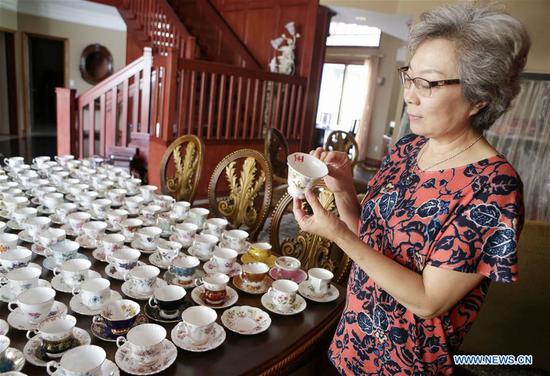Patients seeking medical treatment in China now need to receive a diagnosis in person from a doctor at a hospital before they can access online consultation services, according to new regulations aimed at improving supervision of the nascent internet healthcare industry.
The rules also require online service providers to have cooperation agreements with brick-and-mortar hospitals and say that health professionals must read a patient's medical records before they consult or prescribe medicine over the internet.
The National Health Commission, which released the regulations on Friday, said medical consultants need at least three years of clinical experience in order to provide web services, and only prescriptions for common illnesses and chronic diseases are allowed to be issued online.
"The new regulations play a positive role in giving definitions and setting rules for the industry," said Li Tiantian, chairman of dxy.cn, an online community for medical consultations and diagnoses. "We will fully abide by the regulations and continue to develop our online medical services."
However, he said it probably wasn't necessary for first-time patients to get an in-person diagnosis before accessing online services, as some ailments can easily be identified over the internet or through image analysis.
"Such a clear-cut ban is detrimental to innovation," Li said. "I'd suggest launching pilot programs for first-time patients with less complicated diseases."
Jiao Yahui, the commission's deputy head of medical administration and supervision, said: "In the regulations, we highlight comprehensive supervision of the credentials of medical practitioners, diagnoses, treatment, prescriptions and information security."
The move to standardize online consultation services was a challenge, but regulatory measures should emphasize building a community of shared responsibility between online and brick-and-mortar healthcare providers, she said.
"A third-party provider of online medical consultations is entitled to market access on condition that it works with a brick-and-mortar institution. An agreement should be signed in advance to clarify their respective responsibilities in information security and privacy protection," she said, adding that "purely virtual" services are prohibited.
Jiao said the approval process for providers of online medical consultations will begin once regulatory platforms are set up at the provincial level.
The use of telecommunications and information technology to offer clinical care from a distance-known as telemedicine-has already helped improve access to healthcare for those living in remote communities.
Huang Yong, deputy director of the West China Hospital of Sichuan University, said a telemedicine program operated by the university in the Garze Tibet autonomous prefecture, Sichuan province, has saved about 90 percent of patients with hepatic hydatid-a liver disease caused by tapeworm-from traveling long distances to other provinces for proper treatment.
"The number of patients being diagnosed and treated locally has increased by five times since the launch of the program," he said, adding that telemedicine channels high-quality medical resources to communities with less-advanced services.
Cai Xiujun, director of Sir Run Run Shaw Hospital in Hangzhou, Zhejiang province, said online health services also help streamline diagnosis and can help alleviate doctorpatient disputes.
The online medical consulting market has grown rapidly in China, with more than 1,000 companies formed between 2011 and 2016, according to a report by financial news outlet Yicai citing figures from the founder of an online medical services platform.
The report added that at least 200 billion yuan ($29.1 billion) had been invested in the market in the past four years.


















































